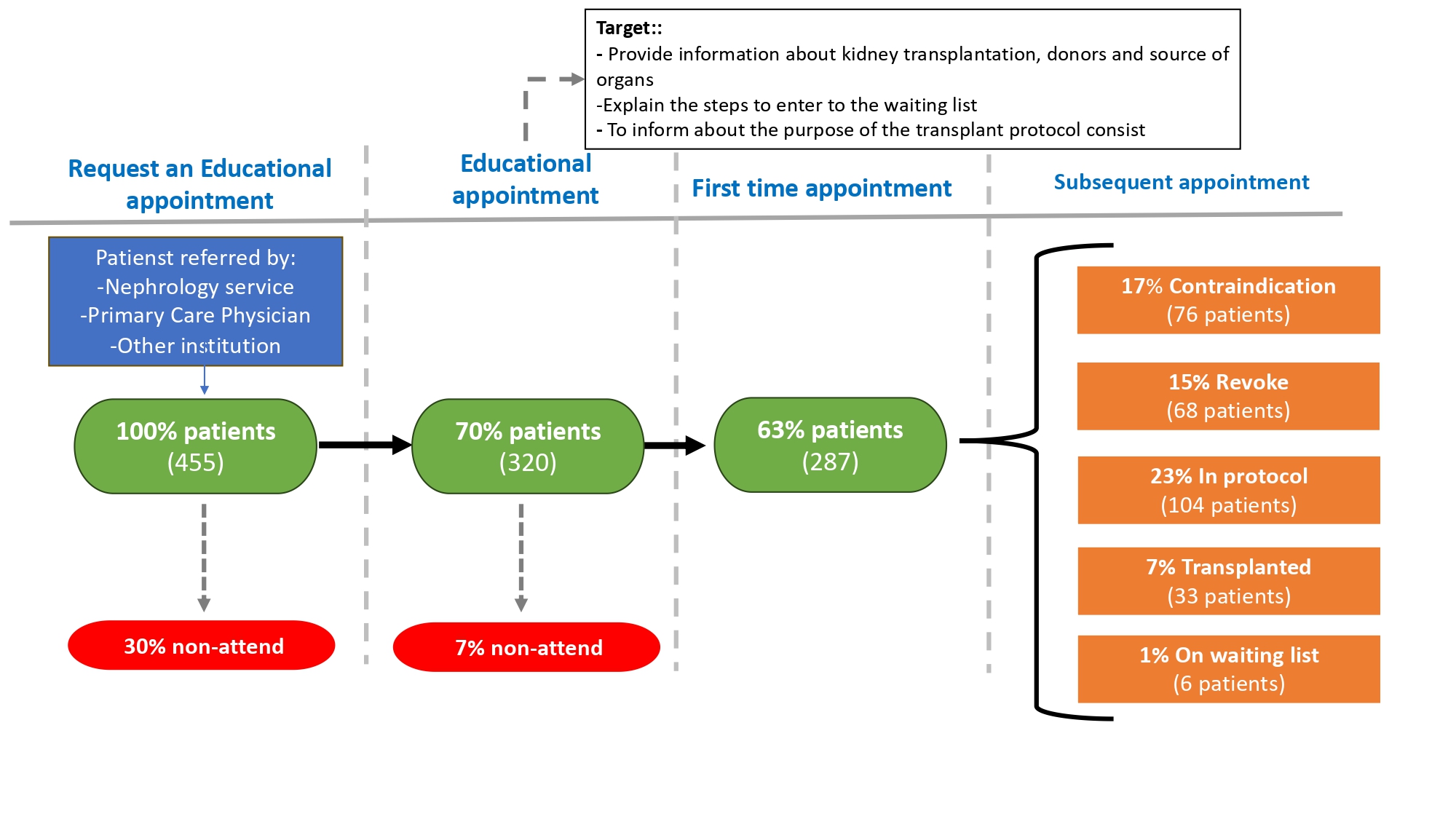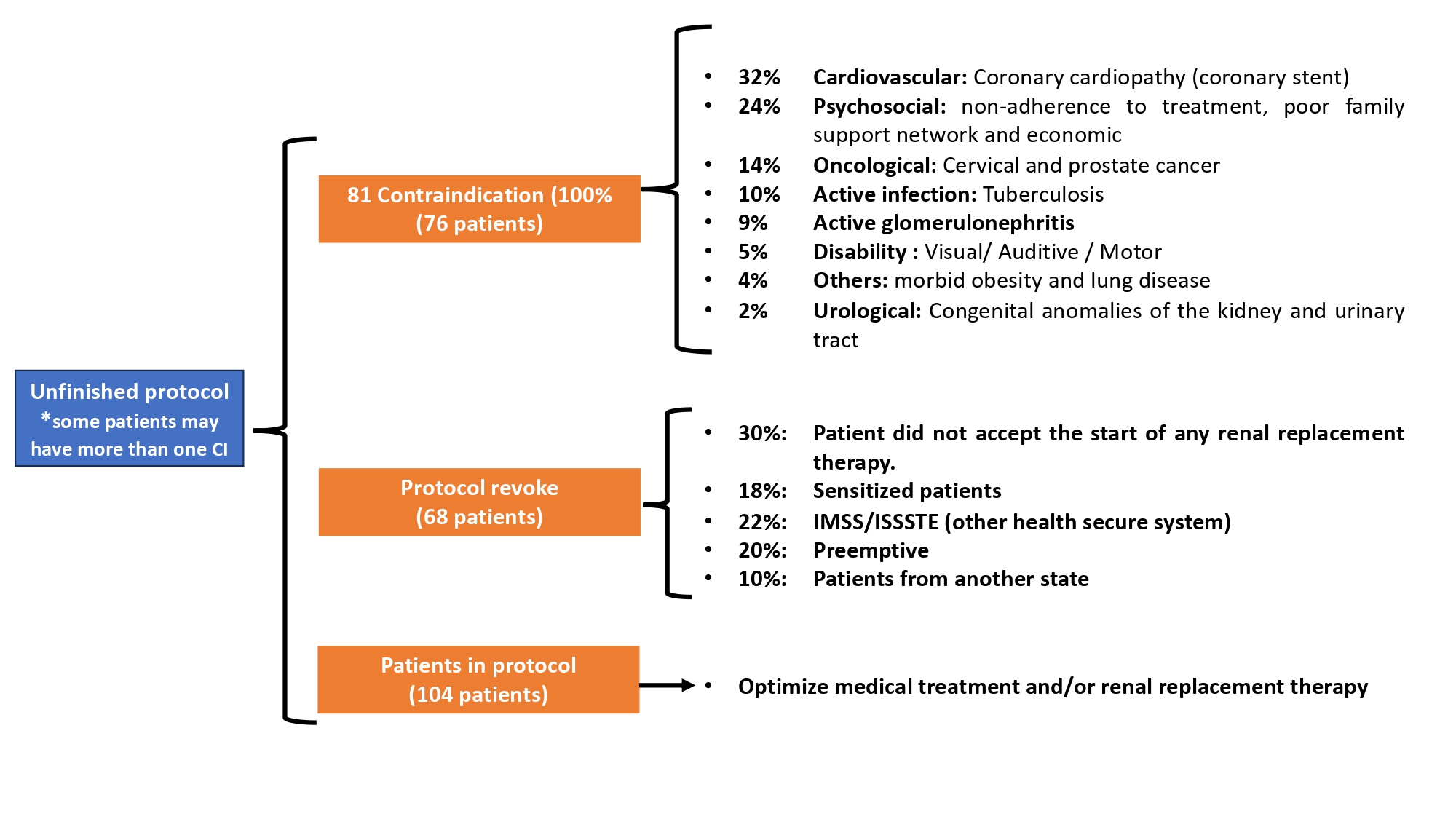Barriers faced by patients to conclude kidney transplant evaluation
Karen Victoria Gonzalez Puebla1,2, Maribel M Merino López1,2.
1Transplant Department, General Hospital of Mexico, Mexico City, , Mexico; 2Nephrology Service , General Hospital of Mexico, Mexico City, , Mexico
Introduction: The evaluation for deceased donor kidney transplant candidates requires information and comprehensive analyses of medical, surgical, and psychosocial history. The selection of candidates continue to be a challenge due to several medical problems that are associated with relative or absolute contraindication during the evaluation limiting been listed. The purpose of this analysis is to reveal the barriers faced by patients to conclude kidney transplant evaluation.
Material and method: Descriptive, and retrospective study. Descriptive analyses included means, standard deviation, and ranges for quantitative variables; for qualitative variables, absolute frequencies.
Results: From January 2022 to December 2023, we evaluated patients referred to begin kidney transplant protocol at the General Hospital of Mexico. A total of 455 (100%) requested educational appointment (informative talk about kidney transplantation). Only 70% continue with it and 63% follow the evaluation to the first-time appointment. (Fig 1.).

Fifty-five percent were men, with a mean age of 41± 14 years. The median time of diagnosis of chronic kidney disease (CKD) KDIGO 5 was 36 months (IQR 12 -72). The etiology of CKD was unknown in 61%, diabetes mellitus in 19%, glomerulonephritis in 11%, and others in 9% (kidney stones, polycystic disease, preeclampsia). We found that 61% patients were on hemodialysis, 21% on peritoneal dialysis, and 18% haven´t began any renal replacement therapy (RRT). The median time on RRT was 24 months (IQR 12-36). During the evaluation, 17% presented a medical contraindication, a total of 81 (100%): 32% cardiovascular (patients with coronary heart disease and decompensated heart failure), 24% psychosocial, 14% oncological, 10% active infection, 9% active glomerulonephritis, 5% disability, 2% urological, 4% others (morbid obesity and lung disease). Twenty five percent of the patients just attended once (sensitized patients, pre-dialysis patients, with social security and patients who did not accept the start of any renal replacement therapy), and 23% continue to be followed up and were listed. (Fig 2.)
Conclusions: The CKD is a high prevalent health issue with treatments available but with some difficulties in their access. We found that those who start renal replacement therapy do it late and when they are referred to complete a kidney transplant evaluation they have multiple comorbidities, misinformation and fear. These analysis contributes to carrying out informative and medical interventions and timely treatment of comorbidities with relevant influence in patient's survival referred to kidney transplant evaluation.
[1] kidney transplant evaluation
[2] contraindication in transplant
[3] donor kidney transplant candidates
